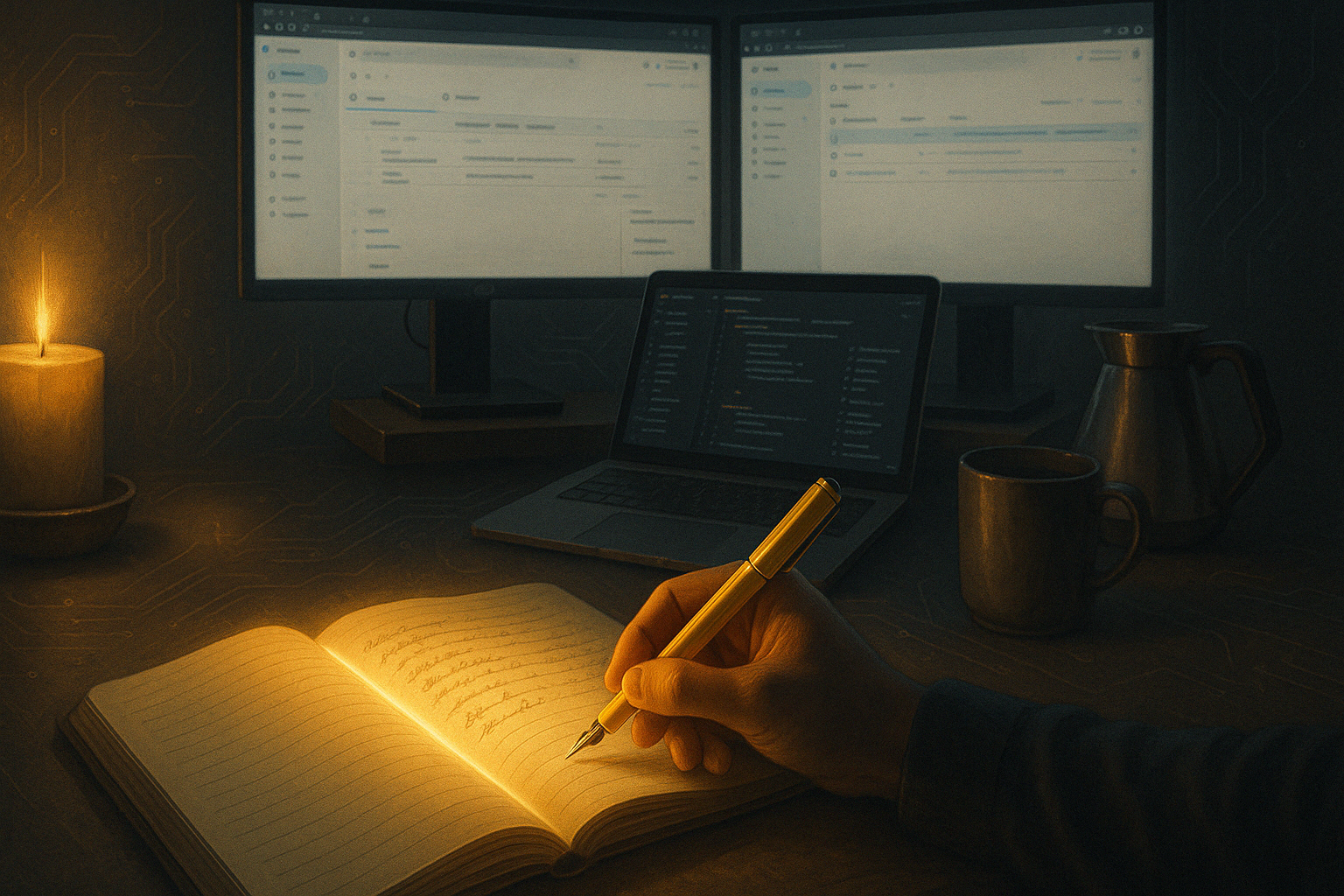Not All That Connects Is Connection

We live in a world where screens dominate our lives. We wake up and reach for our glowing phones, craving that first dopamine hit before we get out of bed. At work, we stare at computer screens for hours on end, barely noticing as time—and our lives—tick by. We come home, then proceed to stare into a larger TV screen (or a laptop screen when we need to continue working) until bedtime, “relaxing” in the blue-light glow of mindless entertainment. Finally, we top it off with some more dopamine as we scroll on our phones before turning in for the night.
This constant digital stimulation was insidiously fraying my sense of peace. Feeling anxious each time I held my phone and tired of this cycle of digital dependence, I found myself yearning for change. The relentless barrage of notifications and the magnetic pull of apps had quietly hijacked my attention, steering me away from the tangible world right in front of me. Realizing I had become a passive participant in my own life, I resolved to reclaim my time and attention. The turning point arrived one evening when I set aside my phone and picked up Cal Newport’s book, Digital Minimalism, a book I highly recommend.
Initially, the transition to less screen time was challenging. I love technology, and I appreciate the many benefits that having near-infinite connection to the world's knowledge through a tiny handheld slab brings. But, I didn't like how my fingers instinctively reached for my phone countless times each day, drawn by invisible strings teasing me with dopamine delights. I needed to find ways to minimize my device use, and knew that a complete digital detox was out of the question, so I looked for quick wins.
One such win was shifting my journaling practice from digital apps to a paper notebook, and I was pleasantly surprised to rediscover that journaling in this manner brought with it a profound sense of presence. The gentle friction of pen on paper grounded me, pulling me back into the moment. Slowly but surely, I began to cherish my mornings and evenings away from devices. Previously tethered to screens for even simple journaling, I now relished the freedom to jot down my thoughts anywhere, anytime—without the harsh glow of a digital screen or concerns about battery life. Does it take longer than digital journaling, where I can type at lightning speed or dictate a thought as I walk? Sure. But this was the point. It slowed down my process, compelling deeper reflection, making each thought more intentional and each word more meaningful.
Reflecting further on Newport’s work, I was reminded of his powerful insight from another of his books, Deep Work:
“Clarity about what matters provides clarity about what does not.”
Digital minimalism isn’t about deprivation but about intentionally choosing activities that enrich our lives, fostering deeper connections with ourselves and the world around us.
The seemingly small change of switching to pen and paper yielded unexpected rewards. No longer reaching for my phone every few seconds, I found myself noticing my surroundings more, seeing things I would surely have missed had my eyes been glued to a glowing screen. I still consider myself early on this digital minimalism journey, but the effects on my mental health have been profound. My stress levels have lowered significantly. The anxiety of constant digital connectivity began to fade. I have even begun writing fiction again, literally penning my first drafts using a fountain pen on paper. I found myself being more present with my wife and my dogs, taking a step back from being busy to just being. I've rediscovered my love for drawing, filling journal pages and sketchbooks with observations from the world around me.
Time, I've realized, is a curious and fluid thing. Without the constant intrusion of screens, my days feel more expansive and precious. It's been a delightful revelation. Interacting directly with the physical world rather than being absorbed by digital distractions allows me to savor life's richness more fully.
Initially, I misunderstood digital minimalism as the total elimination of digital distractions. However, through practice, Newport’s deeper message became clear: this isn't about abandoning technology entirely, but rather about being deliberate and mindful in its use. It involves recognizing the distinction between meaningful digital interactions and fleeting distractions.
I invite you, dear reader, to reflect on your own relationship with technology. Perhaps consider Newport’s question:
“Does this technology support something I deeply value?”
Answering honestly may illuminate paths to greater intentionality and richer life experiences. Instead of allowing our days to slip away in a blur of glowing screens and fleeting dopamine hits, we can choose to reclaim our attention, savour the tangible moments, and reconnect with what truly matters.
Until next week,
Ric.
If this post resonated with you, consider sharing it with someone walking their own path of growth.
Each week, I share personal reflections and insights from my journey of navigating the quiet tension between stillness and becoming. If that speaks to you subscribe to my newsletter and join me on this journey.
And if this post stirred something in you today, I’d love to hear from you—feel free to reply or leave a comment below.
